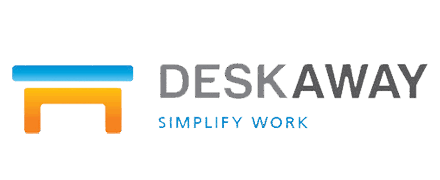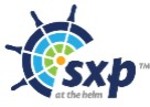Description

DeskAway

Tracked for Basecamp
Comprehensive Overview: DeskAway vs Tracked for Basecamp
DeskAway
a) Primary Functions and Target Markets
DeskAway is a web-based project management and collaboration tool designed to help teams streamline their workflows, manage projects efficiently, and collaborate effectively. Its primary functions include:
- Task management: Creating, assigning, and tracking tasks and milestones.
- Time tracking: Recording the amount of time spent on various tasks and projects.
- Project reporting: Generating comprehensive reports on project progress and performance.
- File sharing: Offering a centralized hub for documents and files related to projects.
- Collaboration tools: Facilitate discussions, leave comments, and share updates within the team.
The target markets for DeskAway include small to medium-sized businesses (SMBs) and freelancers who require a robust yet straightforward project management tool that helps them coordinate tasks and projects effectively.
b) Market Share and User Base
As of the last available data, DeskAway has a modest market share in the project management software space. It primarily caters to the SMB sector, which values its affordability and ease of use. The user base is typically made up of companies that prefer straightforward and cost-effective solutions over more complex and expensive enterprise software.
c) Key Differentiating Factors
- User Interface: DeskAway is known for its simple and intuitive user interface, making it accessible for users who may not be very tech-savvy.
- Cost-Effectiveness: It offers competitive pricing compared to some larger, more feature-heavy competitors, making it an attractive option for smaller organizations.
- Focus on Essential Features: DeskAway prioritizes core project management functionalities, avoiding feature bloat that can overwhelm users.
Tracked for Basecamp
a) Primary Functions and Target Markets
Tracked for Basecamp is a third-party time-tracking and reporting tool designed to integrate seamlessly with Basecamp, a popular project management platform. Its primary functions include:
- Time Tracking: Allows users to log time against specific tasks and projects within Basecamp.
- Reporting: Provides insights and reports on time spent across various projects and tasks.
- Billing Integration: Facilitates generating invoices based on tracked time for clients.
The target market for Tracked for Basecamp includes existing Basecamp users, primarily small to medium-sized businesses and teams that already leverage Basecamp for project management and need a specialized tool for time tracking and reporting.
b) Market Share and User Base
Tracked for Basecamp serves a niche market of Basecamp users looking for enhanced time-tracking capabilities. Given that it is an add-on tool, its market share is intrinsically tied to the Basecamp user base. It is popular among teams that heavily rely on Basecamp for project management and wish to have more detailed insights into their time allocation.
c) Key Differentiating Factors
- Integration with Basecamp: The primary differentiator for Tracked is its seamless integration with Basecamp, which allows users to leverage its time-tracking functionalities without leaving the Basecamp environment.
- Enhanced Reporting: Offers more detailed and customizable time reports compared to Basecamp’s native capabilities, catering to users who require precise time tracking and billing.
- Niche Tool: It serves a specific purpose for a niche audience, focusing solely on enhancing the time-tracking aspect rather than providing a broad project management suite.
Comparison Overview
While both DeskAway and Tracked for Basecamp contribute to project management needs, they cater to different aspects and markets. DeskAway offers a holistic project management solution targeted mainly at SMBs, while Tracked for Basecamp enhances time-tracking functionalities specifically for Basecamp users. In terms of market presence, DeskAway competes within the broader project management software market, whereas Tracked for Basecamp serves as a complementary tool to the popular Basecamp ecosystem. Their differentiation lies in DeskAway’s focus on cost-effective project management solutions versus Tracked’s specialization in time tracking for an existing user base.
Contact Info

Year founded :
2007
+91 22228 54133
Not Available
India
Not Available

Year founded :
Not Available
Not Available
Not Available
Not Available
Not Available
Feature Similarity Breakdown: DeskAway, Tracked for Basecamp
Comparing DeskAway, Tracked, and Basecamp involves analyzing their core features, user interfaces, and any unique attributes they may have. Here's a feature similarity breakdown:
a) Core Features in Common
-
Project Management:
- All three platforms offer fundamental project management capabilities, including task creation, assignment, and tracking. They allow users to organize and manage projects effectively.
-
Collaboration Tools:
- Each tool provides collaboration features such as team communication, file sharing, and discussion threads to facilitate communication and teamwork.
-
Task Management:
- DeskAway, Tracked, and Basecamp allow users to create, assign, and manage tasks within projects, setting deadlines and prioritizing their workload.
-
Progress Tracking:
- All three offer functionality for tracking project progress and task completion, whether through status updates, reports, or dashboards.
-
Document Sharing:
- There are platforms for storing and sharing documents and files in the context of a project, making it easy to access necessary information.
-
Time Tracking:
- The ability to track time spent on tasks and projects is a common feature, ensuring efficiency and better project planning.
b) User Interface Comparison
-
Basecamp: Basecamp is known for its simple and user-friendly interface. It uses a streamlined, minimalist design that focuses on ease of navigation and functionality. The interface is intuitive, making it easy for new users to get started without much of a learning curve.
-
DeskAway: DeskAway has a straightforward interface that balances functionality with accessibility. Its design is more traditional, offering a comprehensive view of project details while being relatively simple to use. It might not be as visually minimalistic as Basecamp but is still navigable.
-
Tracked: Tracked focuses on functionality with a clean interface, often slightly more data or metrics-focused. It may appeal to those who prefer detailed project analytics and a more structured visual layout.
c) Unique Features
-
Basecamp:
- Basecamp offers a feature called "Campfire," an integrated chat tool that enhances instant communication and team discussions.
- "Automatic Check-Ins" which allow for structured, asynchronous team updates.
-
DeskAway:
- DeskAway provides advanced reporting capabilities, allowing for customized reports and insights into projects and team performance.
- Offers a built-in calendar feature that can integrate with personal calendar apps.
-
Tracked:
- Known for powerful analytics, Tracked provides in-depth insights and performance metrics about project timelines and team productivity.
- It may also include more sophisticated time tracking and billing integration for freelancers or agencies requiring detailed invoicing capabilities.
Overall, while all three tools share many core project management features, they cater to different user needs based on their specific strengths—Basecamp for simplicity and communication, DeskAway for detailed project reporting, and Tracked for data-driven project oversight and analytics.
Features

Not Available

Not Available
Best Fit Use Cases: DeskAway, Tracked for Basecamp
a) DeskAway: Best Fit Use Cases
Types of Businesses or Projects:
-
Small to Medium-Sized Businesses (SMBs): DeskAway is ideal for SMBs that are looking for an affordable and straightforward project management solution. Its features cater well to companies that need to streamline their project management without the complexity of larger systems.
-
Service-Based Industries: Businesses in sectors such as marketing, consulting, or IT services can benefit from DeskAway's ability to manage multiple client projects simultaneously. Its emphasis on collaboration and communication makes it a fit for teams that rely heavily on coordination and sharing updates.
-
Project-Centric Organizations: Companies where the primary business focus is on completing diverse projects, such as creative agencies or software development firms, will find DeskAway's task management, milestone tracking, and document management features particularly beneficial.
Optimal Scenarios for Use:
-
Cross-Functional Collaboration: When there is a need for different departments to work together, DeskAway provides tools and features that enhance visibility and communication among teams.
-
Remote or Distributed Teams: DeskAway’s cloud-based platform supports teams that work across different locations, offering centralized access to project data and communications.
b) Tracked for Basecamp: Preferred Use Cases
Types of Businesses or Projects:
-
Basecamp Users Needing Enhanced Time Tracking: Tracked is specifically designed for teams already using Basecamp who require more robust time tracking capabilities. It integrates seamlessly to enhance Basecamp's project management features.
-
Consulting Firms: For companies that bill clients by the hour and rely heavily on accurate time tracking and reporting, Tracked for Basecamp integrates these functionalities directly into the existing Basecamp workflow.
-
Freelancers or Small Teams: Individuals or teams already comfortable with Basecamp’s environment but looking for additional tracking features would prefer Tracked for Basecamp for its ability to improve accountability and billing accuracy.
Optimal Scenarios for Use:
-
Detailed Time Tracking Needs: When projects require detailed time tracking to manage budgets and resource allocation, Tracked extends Basecamp’s capabilities without requiring an entirely new system.
-
Enhancing Existing Basecamp Workflows: Organizations that have already invested in Basecamp and are looking to enhance their workflow with minimal disruption can utilize Tracked to gain new insights without migrating to a new platform.
d) Catering to Different Industry Verticals or Company Sizes
DeskAway:
-
Industry Verticals: DeskAway is versatile enough to be applied in various industries, including technology, healthcare, education, and more, primarily because of its scalable project management features.
-
Company Sizes: While it's most beneficial for small to medium-sized enterprises, its robust feature set can scale to support larger organizations with the right customization and integrations.
Tracked for Basecamp:
-
Industry Verticals: Tracked caters specifically to industries where time management and accountability are crucial, such as legal, consulting, or creative industries.
-
Company Sizes: Mostly suited for small to medium-sized businesses that use Basecamp, as well as freelancers and independent contractors who need reliable time tracking without leaving their existing project management environment.
In summary, DeskAway is a comprehensive project management tool suitable for a wide range of businesses and industries, while Tracked for Basecamp is a specialized add-on for those who need enhanced time tracking within the Basecamp ecosystem.
Pricing

Pricing Not Available

Pricing Not Available
Metrics History
Metrics History
Comparing undefined across companies
Conclusion & Final Verdict: DeskAway vs Tracked for Basecamp
To reach a comprehensive conclusion on DeskAway versus Tracked for Basecamp, it's essential to analyze the features, pricing, usability, and target user base of both products. Here's a detailed verdict:
a) Best Overall Value
DeskAway tends to offer better overall value for teams that need a straightforward, budget-friendly solution with a focus on basic project management features like task management, file sharing, and time tracking. It is appealing for small to medium-sized businesses that prioritize ease of use and affordability.
Tracked for Basecamp, on the other hand, is more suited for teams already using Basecamp who require more advanced tracking and analytical features. This product offers seamless Basecamp integration which can enhance and expand the capabilities of Basecamp’s existing infrastructure without switching platforms.
b) Pros and Cons
DeskAway
- Pros:
- User-friendly interface with minimal learning curve.
- Affordable pricing, especially for smaller teams.
- Offers fundamental project management features necessary for most small projects.
- Cons:
- Limited integration with other third-party applications.
- Not as feature-rich compared to more comprehensive project management solutions.
- May lack scalability for larger or more complex projects.
Tracked for Basecamp
- Pros:
- Strong integration with Basecamp, enhancing its functionality.
- Provides advanced tracking and analytics tools which might be lacking in Basecamp.
- Saves transitional costs for existing Basecamp users by adding functionality without needing to switch platforms.
- Cons:
- Additional cost on top of Basecamp's subscription, which may not be feasible for teams with budget constraints.
- Complexity might slightly increase due to the need to manage both Basecamp and Tracked functionalities.
- More suitable for users who are familiar with Basecamp's ecosystem.
c) Recommendations
-
For Users New to Project Management Software: DeskAway is a suitable choice due to its ease of use and straightforward pricing model. It serves as an excellent starting point for teams and businesses new to digital project management tools.
-
For Existing Basecamp Users: Tracked for Basecamp is recommended if there's a need for more robust tracking and analytics capabilities. It leverages the existing Basecamp infrastructure and stretches its capabilities, making it an efficient choice for users who don't want the hassle of learning a new system entirely.
-
For Budget-Conscious Teams: Choose DeskAway, as it offers necessary functionalities within a budget-friendly framework.
-
For Feature-Rich Requirements: If your team requires advanced project management and analytics features already using Basecamp, then Tracked for Basecamp provides substantial added value without the need to disrupt your current operations.
In conclusion, the decision between DeskAway and Tracked for Basecamp largely depends on the existing tools a team uses, their budget constraints, and the specific needs for project management and analytics they require. Each tool certainly has its unique advantages, and choosing between them should align with the user’s specific operational needs and financial considerations.
Add to compare
Add similar companies



